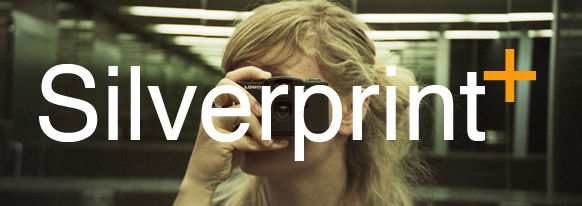
Abstract
From the Daguerreotype to today’s modern film emulsions, tinting and toning has had an almost mythical presence throughout the history of film.
Practically, it is the process of converting black and white images into colour – but in another sense, it is an entirely new medium unto itself. Once familiar with the process, you will find that it leads to new ideas, journeys, and worlds of colour without beginning or end…
In this workshop with London based film lab no.w.here, we will be taking you through a hands-on exploration of the history, theories, motivations and concepts behind tinting and toning 16mm motion picture film. The workshop is easily accessible and no previous knowledge of film techniques or technology is required.
Participants will have the opportunity to experience the uses of the following tinters and toners on film; Selenium, Copper, Iron, Gold, Mordant Dyeing and tea. Kevin will also discuss techniques such as full toning, split toning, partial toning, dual toning and selective toning. You are welcome to bring your own b/w 16mm strips for experimentation, stock will also be provided.
[Below: Alice in Wonderland (1903), an early example of tinting and toning motion picture film. The processing of toning is a sort of rabbit-hole in itself…]Produced with the additional support of SilverPrint (www.silverprint.co.uk)
Attending the Workshop [Dates, Fees & Requirements]:
This workshop is being produced by no.w.here film lab, and as such all inquiries regarding attendance should be handled through no.w.here:
- no.w.here’s workshop page, including contact information and attendance policies
- no.w.here’s event listing for this workshop
The date of the workshop is set for January 21st, 2012 between the hours 10:30 AM (GMT) and 6:00 PM (GMT)
Aside from no.w.here’s own policies, there are no additional requirements for attending this workshop.
Selected Screenings:
(Note: not all works will be shown in their entirety, or perhaps even at all. Additionally, we will not be able to secure prints for this workshop, unless otherwise noted)
- Wheelchair (Andrew Busti, 2002)
- Le Voyage dans la Lune (Georges Méliès, 1902)
- Various technical documentations
Frequently Asked Questions:
Q: I’ve never worked with motion picture film before. Will that limit my experience?
A: No, experience with motion picture film is not necessary when participating in the workshop and we will try and accommodate as many questions you have possible before, during or after the workshop.
Q: I have some film I would like to bring into the workshop to work with. Is this okay?
A: Yes, but there are a few things you should keep in mind when bringing in film for this workshop. First off, because we will be limited on time, your film should already be processed. This will not affect your ability to work with any of the techniques presented in the workshop per say. Second, it is recommended that you avoid bringing in a film of particular value or significance as we cannot guarantee that it will not be damaged or ruined beyond a usable extent.
If you do decide to bring film, there are a few things you should keep in mind when deciding what kind of film to bring: first, while it is possible to exercise some of the techniques reviewed in this workshop on any variety of film, the majority of the techniques will only work with an image formed of silver. What this means is that black and white films (typically formed solely of silver) will be the most versatile stock to bring. Color stocks on the other hand will be more limited as they typically have the silver removed in processing. The only exception to this is in regards to color film that has been bleach-bypassed, a specific lab technique which retains the silver in the dense regions of the color emulsion; if the utilization of color film in this workshop is of particular importance to you, than email Kevin Rice (kevin|a|processreversal.org) to discuss the topic further — additionally, we will be discussing it in the workshop itself.
Finally, in regards to film format, we will have all the necessary equipment to deal with regular 8mm, super 8mm, 16mm and 35mm film.
Q: I would like to travel to attend the workshop, but I’m not certain if I can afford housing accommodations. Do you provide scholarship?
A: No, and because this workshop is taking place abroad, we do not have a pool of volunteers to draw from to help with accommodations. Our best suggestion would be to contact no.w.here with any advice and to look into couch surfing.
Q: I missed the opportunity to attend this workshop. Will you be running it again?
A: If the demand exist, absolutely. Send us an email or message requesting it.
Further Readings & Online Resources:
Copies of these books & articles will be provided during the workshop and can also be secured at various local libraries and on the web:
- The Master Photographers Toning Book (Tim Rudman)
- Developing (C.I. Jacobson)
- The Darkroom Cookbook (Steve G Anchell)
- The Film Developing Cookbook (Steve G Anchell & Bill Troop)
- Recipes for Disaster: A Handcrafted Film Cookbook (ed. Helen Hill)
- Additional Resources from Brian Pritchard




Leave a Reply
Want to join the discussion?Feel free to contribute!